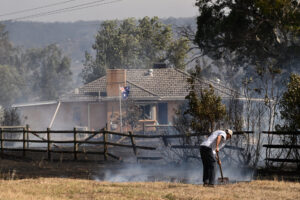The climate debate reveals how confused the philosophical underpinnings of political parties have become, writes Richard Denniss for The Australian Financial Review.
Public debate about the details of climate policy can be like seven-year-olds arguing over who would win a battle between Spiderman and The Incredible Hulk.
The debate is messy because of the combination of old economic concepts, new political slogans, and a complicated Senate. The outcome is a partisan sparring match so confused and conflicted that, dare I say it, Twitter and news headlines simply can’t capture the complexity of what is going on!
There are many ways to change consumer and industry behaviour, including taxes, subsidies, prohibition, campaigns and regulation. All political parties support these tools but disagree on which tool should be used for which problem. The question usually revolves around politics rather than philosophy.
Related documents
Between the Lines Newsletter
The biggest stories and the best analysis from the team at the Australia Institute, delivered to your inbox every fortnight.
You might also like
Why a fossil fuel-free COP could put Australia’s bid over the edge
When the medical world hosts a conference on quitting smoking, they don’t invite Phillip Morris, or British American Tobacco along to help “be part of the solution”.
Burning homes and rising premiums: why fossil fuel companies must pay the bill
Another summer, another round of devastation: homes lost, communities evacuated, lives upended.
How the government is setting everyone up to fail on green claims
If a private company ran a scheme that misled consumers, inflated investor confidence, and exposed its clients to legal risk, we would expect the government to shut it down.



